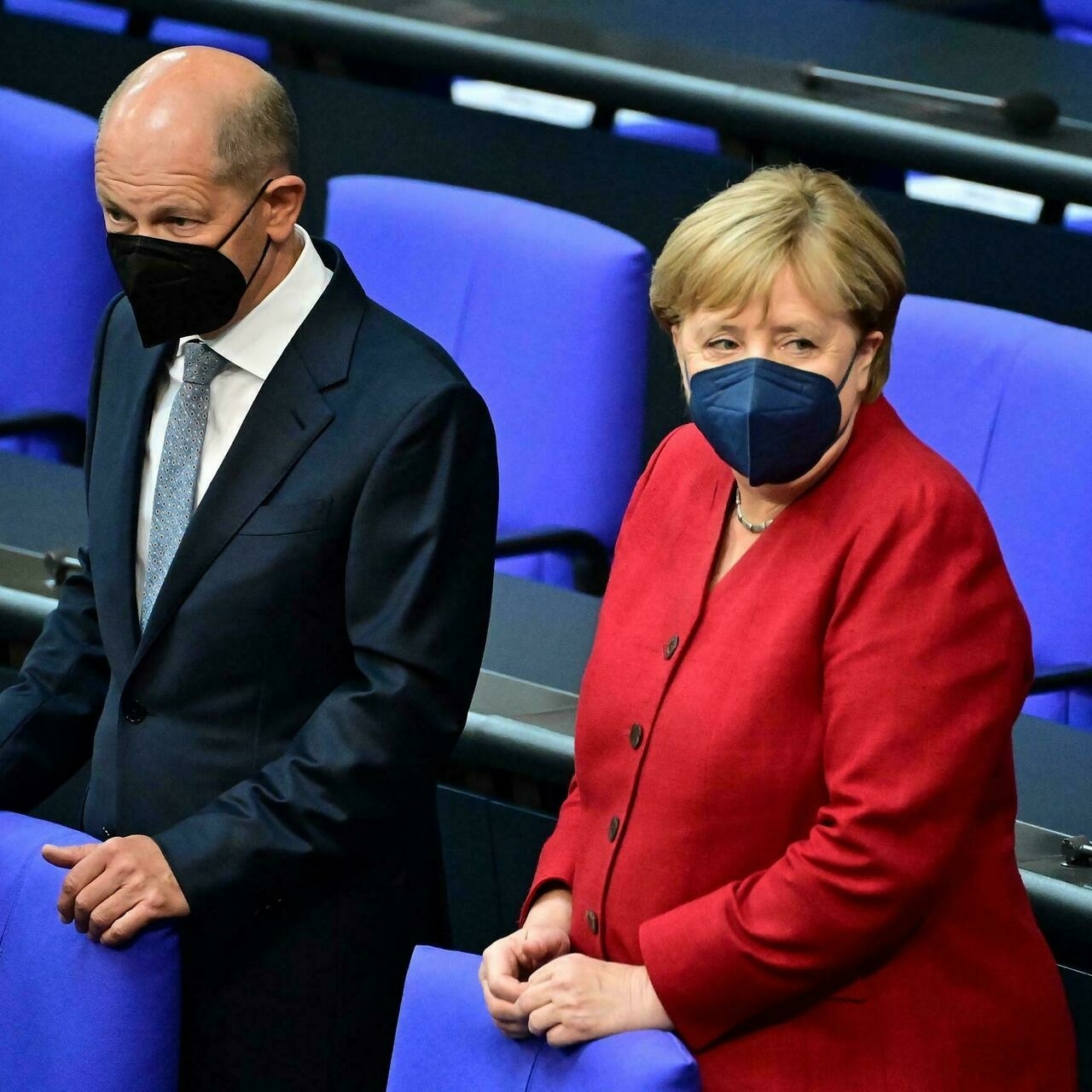
BERLIN, Dec 2, 2021 (BSS/AFP) - Chancellor Angela Merkel and her designated
successor Olaf Scholz will meet German regional leaders on Thursday to
finalise new measures to tackle surging Covid cases, with compulsory jabs
among the options on the table.
Infections have smashed records in Germany in recent weeks and hospitals
are sounding the alarm, with many already over capacity and sending patients
to other parts of the country for treatment.
Though the seven-day incidence rate has fallen slightly this week, it
still stood at 442.9 new infections per 100,000 people on Wednesday, with
67,186 new cases recorded in the past 24 hours.
Merkel, Scholz and the leaders of Germany's 16 states tightened Covid
restrictions just two weeks ago, but came together again on Tuesday to
discuss tougher measures and are now expected to fine tune the plans.
After Tuesday's meeting, Scholz said he was in favour of compulsory
vaccination for all Germans and wants parliament to vote on the matter before
the end of the year.
"Too many people have not got vaccinated," he told Bild television. Making
jabs compulsory is justified "to protect us all", he said.
Many experts have blamed Germany's surging fourth wave on its relatively
low vaccination rate of around 68 percent, compared to fellow EU countries
such as Spain on 79 percent and Portugal on 86 percent.
- 'Must move quickly' -
Compulsory jabs should be in force "in the beginning of February or March
so we must move quickly now," Scholz said, promising that lawmakers would be
allowed to vote according to their conscience.
Merkel's outgoing government had always ruled out mandatory vaccination,
but the measure is now backed by politicians from across the spectrum.
Merkel's spokeswoman on Wednesday stopped short of endorsing the measure but
said Germany was "in a dramatic situation in the pandemic where new
possibilities have to be thought about".
In Berlin on Wednesday, a woman who gave her name as Clara said she
disagreed with compulsory jabs in principle but also felt "we are already so
deep in the pandemic that there is no way around it".
Fellow passer-by Alicia Muench said it "would have been a good idea from
the beginning" and she was in favour of the move, "especially in certain
professions, but also in general".
Germany already announced plans earlier this month to require health
workers and soldiers to get inoculated against Covid-19.
Expanding that to the general public would see the country follow the
example of neighbouring Austria, which is planning mandatory vaccinations
from February.
Greece has announced mandatory jabs for over 60s, with unvaccinated people
facing fines if they don't comply.
- Curbs for unvaccinated -
European Union chief Ursula von der Leyen said Wednesday it was time for
the bloc to "think about mandatory vaccination" against Covid, though she
also stressed it was up to individual states to make the decision.
"My personal position is... I think it is understandable and appropriate
to lead this discussion now," she said. Other measures up for discussion in
Germany on Thursday include capping the number of people the unvaccinated can
socialise with, closing nightclubs and limiting large events. Only the
vaccinated and recovered would be allowed into non-essential shops, according
to the plans.
Bavarian premier Markus Soeder has said he expects Bundesliga football
games to return to playing to empty stands, following an outcry over a packed
stadium in Cologne at the weekend.
Several hard-hit German regions have already cancelled Christmas markets
and barred the unvaccinated from public spaces like gyms and leisure
facilities to slow the pandemic spread.
But critics say the patchwork of rules is confusing, and this week's
emergency talks are aimed at coming up with nationwide rules.
Thursday's meeting comes two days after the country's constitutional court
ruled that sweeping measures imposed earlier in the pandemic -- including
curfews, school closures and contact restrictions -- were lawful.